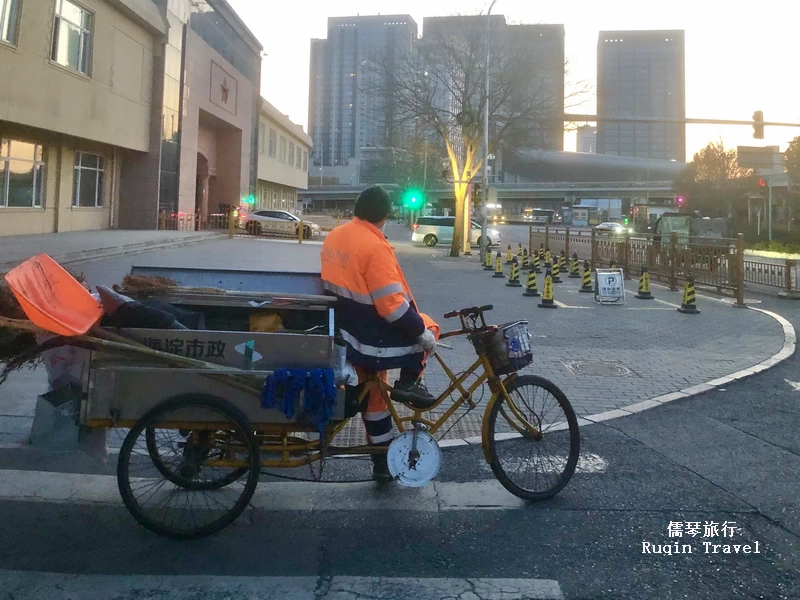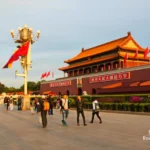Arriving in Beijing via the High-Speed Train G182 from Hangzhou, a journey of just over five hours, I found myself intrigued by an often-overlooked aspect of this bustling metropolis: its street cleaners. In the soft light of early morning, while staying at the RoyalRae ZhongYiPengAo Hotel, I embarked on a jog and stumbled upon a scene that encapsulated the spirit of the city. It was around 6:00 am, just before sunrise, when I witnessed a group of street cleaners clad in yellow uniforms, wrapping up their early shift.
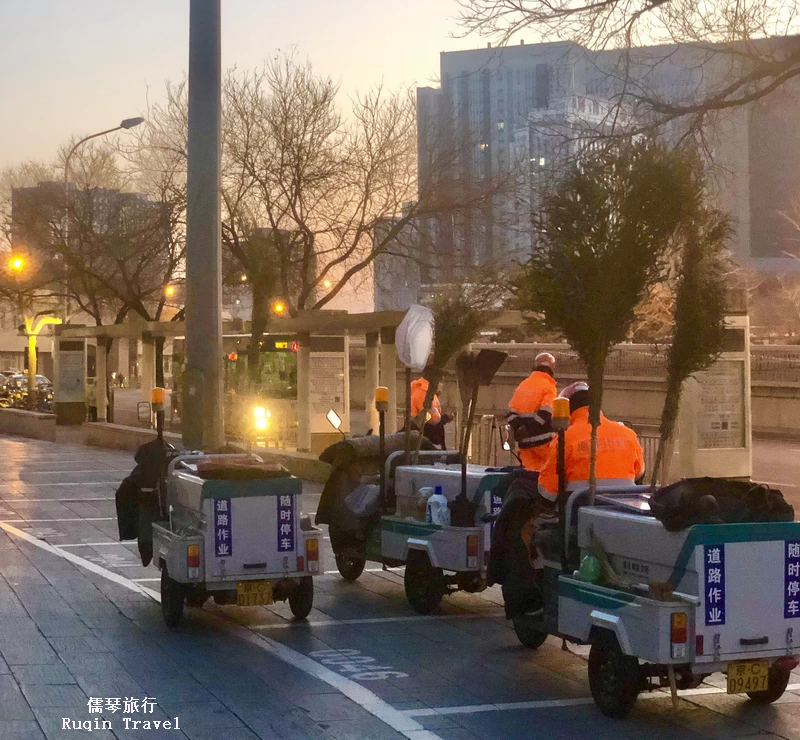
The sight of these diligent workers, already active at such an early hour, set the tone for my understanding of Beijing’s cultural fabric. Their contribution to the city’s cleanliness and orderliness, often unnoticed by many, struck me as a vital part of Beijing’s daily rhythm. The commitment and efficiency of these workers in maintaining the city’s aesthetic and hygienic standards offer a unique insight into the city’s values and work ethic, laying the groundwork for a deeper exploration of the lives of the “Street cleaners in Beijing.”
A Morning Encounter
At the break of dawn, under a sky transitioning from night to day, I encountered Mr. Zhong and his team of street cleaners at the Gongzhufen crossroad. This intersection, nestled between western Chang’an Street and the Third Ring Road, was already pristine, reflecting the team’s hard work that began at 4:00 am. Mr. Zhong, who appeared to be leading the group, shared that their day starts as early as 3:30 am.
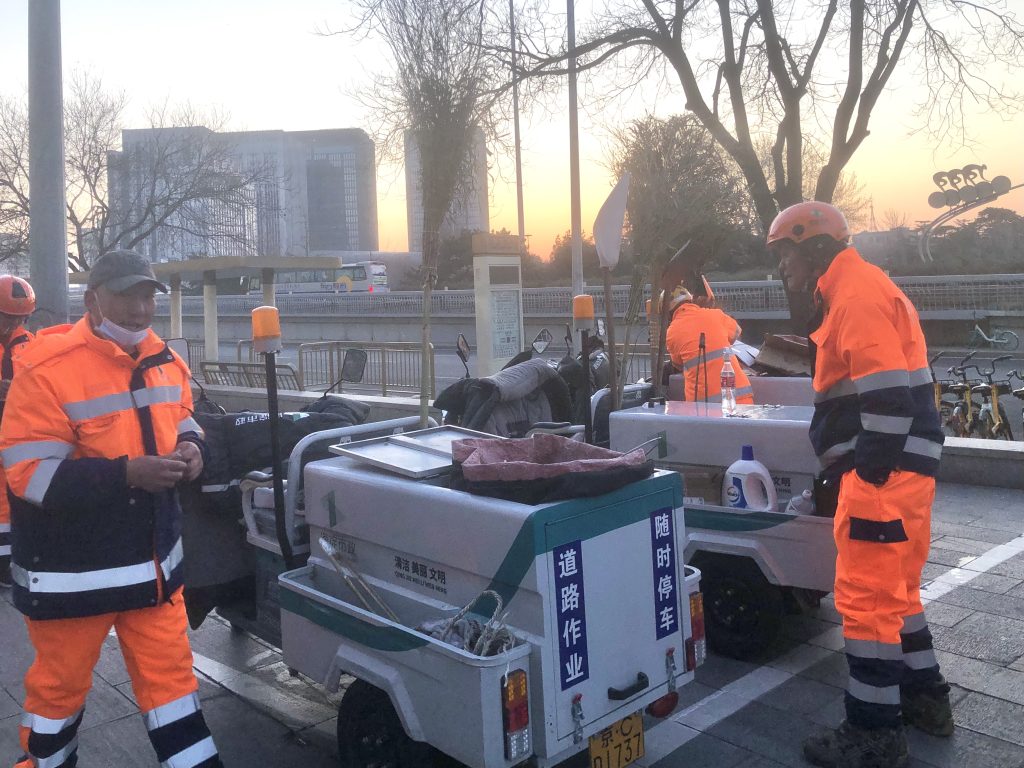
The streets, under the early morning light, were impeccably clean, a testament to the thoroughness of these workers. Each cleaner was equipped with a simple yet effective toolkit: a cart and either a bamboo or sorghum broom. Their bright yellow uniforms were not just functional; they were symbols of their indispensable role in the city’s daily life. The scene captured a quiet, yet significant, moment of transition where the city, freshly groomed by these unsung heroes, began to awaken.
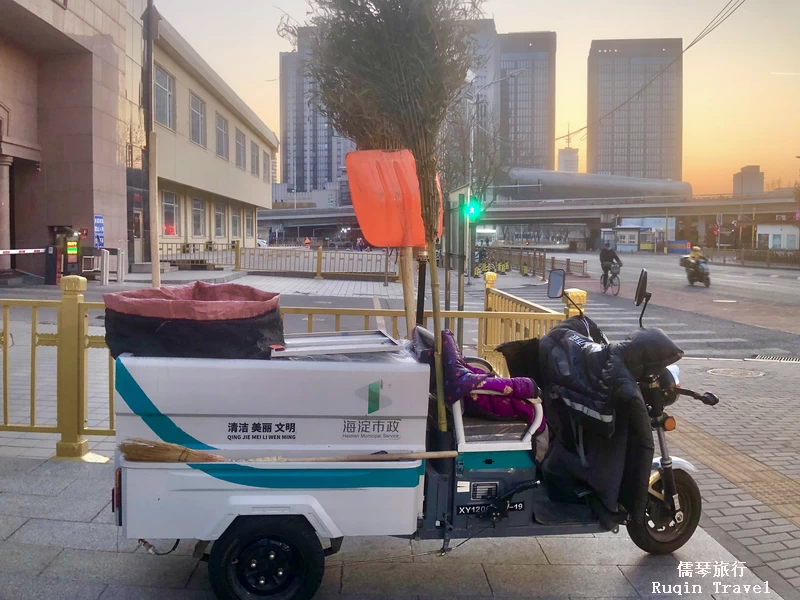
Witnessing the cleaners in action offered a glimpse into the disciplined and structured life they lead. It was a stark reminder of the dedication required to maintain the sprawling cityscapes of Beijing. As the early risers started to tread upon the freshly cleaned pavements, there was a sense of respect and gratitude towards these diligent workers, often unnoticed yet integral to the city’s pulse.
The Life of a Street Cleaner
In the midst of the bustling city life, Mr. Zhong’s story unfolds, revealing the human aspect behind the uniform. Originally from Luoyang in Henan Province, Mr. Zhong’s journey to Beijing is one shared by many seeking new opportunities in this dynamic capital. As a street cleaner, he earns a modest income of 3400 yuan per month. While expressing some concerns about the challenges of living on this wage, his dedication to his work remains unwavering.
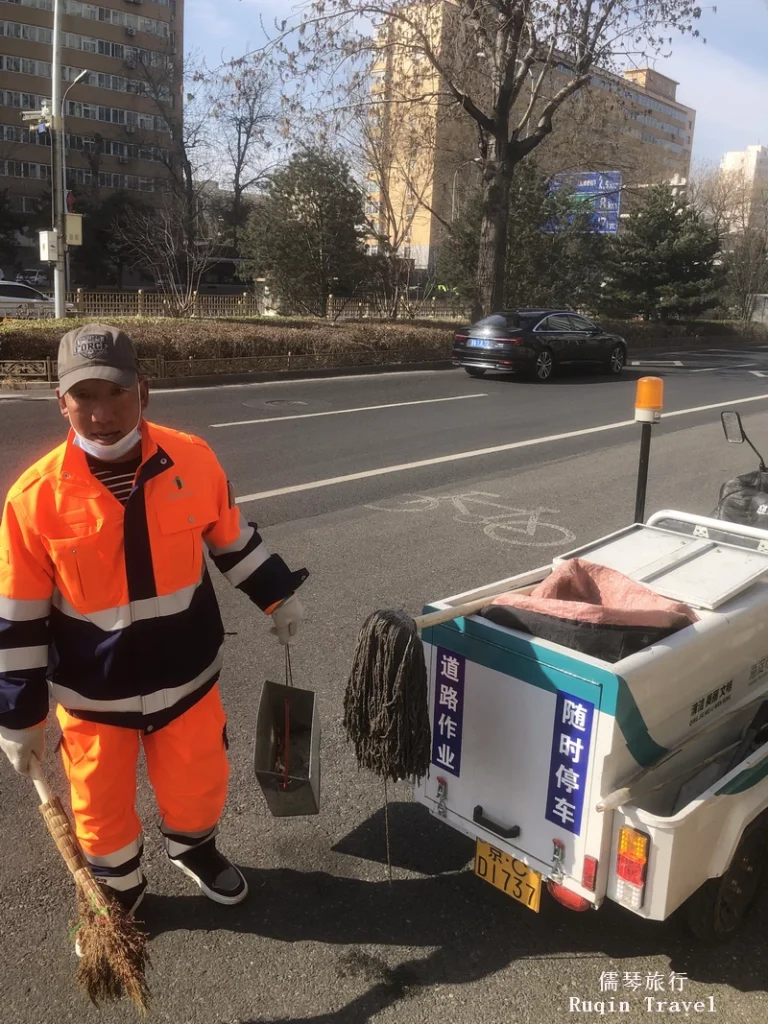
Mr. Zhong’s family life offers a stark contrast to his own career path. His twin sons, who also reside in Beijing, have carved out a niche for themselves as kung fu coaches – a nod to the rich martial arts tradition of their hometown, Shaolin Temple in Luoyang. Their success in the city, earning significantly higher incomes, highlights the diverse opportunities available in Beijing, even within a single family.
This juxtaposition between Mr. Zhong’s occupation and that of his sons underscores the varied societal roles and economic realities in modern Beijing. It also reflects the broader spectrum of life in a city that blends tradition with modernity. Despite these differences, there is a sense of pride and resilience in Mr. Zhong’s narrative, a common thread that runs deep in the city’s ethos.
Cultural Reflections
Mr. Zhong’s story, juxtaposed with that of his sons, is a microcosm of Beijing’s rich and complex tapestry. It reflects a city where tradition intersects with modernity, and where each individual plays a unique role in shaping the societal landscape. The dedication of street cleaners like Mr. Zhong to their work mirrors the deep-seated values of discipline and community service inherent in Chinese culture.
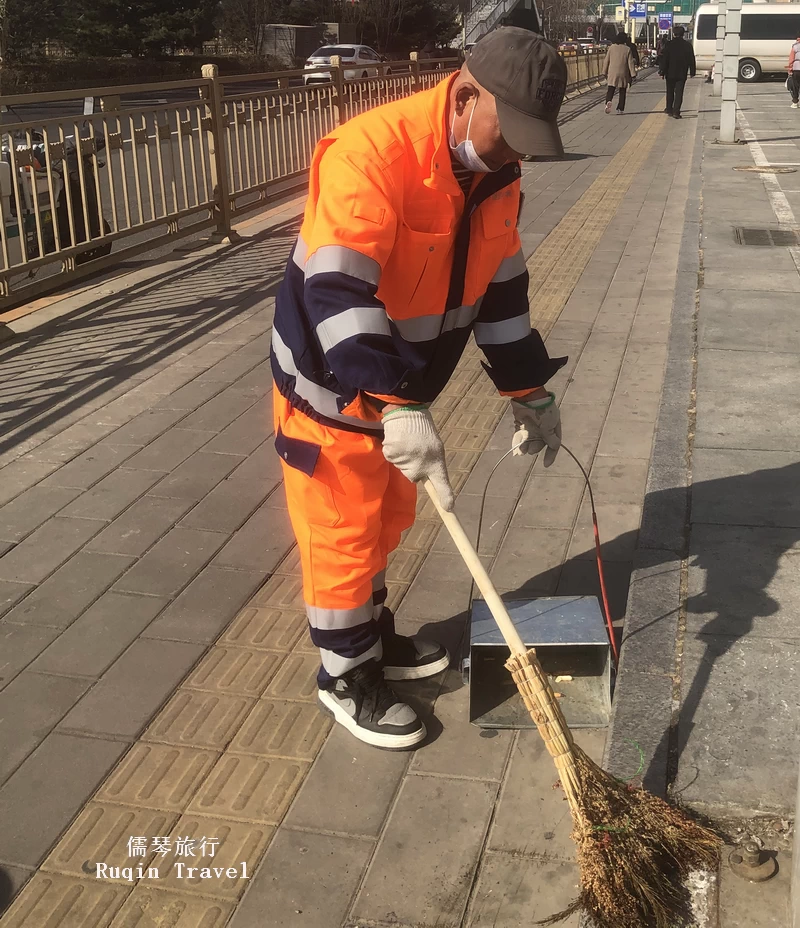
The connection to martial arts, a significant element of Luoyang’s cultural heritage, as seen in Mr. Zhong’s sons, further enriches this narrative. It highlights how traditional practices continue to influence and shape modern livelihoods, even in a rapidly evolving city like Beijing. This cultural thread not only ties the generations together but also offers insights into the diverse ways individuals can contribute to and thrive in the urban fabric.
Street cleaners in Beijing, often unnoticed in the daily hustle, are essential in maintaining the city’s rhythm and appearance. Their role goes beyond mere sanitation; they are custodians of the city’s public spaces, contributing silently yet significantly to the city’s well-being. This speaks volumes about the societal values placed on cleanliness, order, and respect for shared spaces.
Mr. Zhong’s reflections on his profession underscore a sense of purpose and pride. Despite the modesty of his occupation, there is a profound understanding of its importance in the broader context of city life. The respect and acknowledgment he receives from locals further reinforce the societal appreciation for his role.
The Future of Street Cleaning in Beijing
As Mr. Zhong approaches the twilight of his career, with retirement on the horizon, his thoughts reveal a deep-seated affection for his job. Despite the physical demands and early mornings, he speaks of his work with a sense of fulfillment, driven by the lively vibe of Beijing and the satisfaction of contributing to society. His plan to continue working post-retirement is a testament to his dedication and the joy he derives from his role.
This personal commitment of Mr. Zhong offers a window into the evolving perceptions of street cleaning in Beijing. Far from being seen as a mere job, it is increasingly recognized as a crucial service that enhances the quality of urban life. The role of street cleaners, like Mr. Zhong, in maintaining the aesthetic and sanitary standards of the city is vital in sustaining Beijing’s status as a modern, international metropolis.
Looking forward, the profession of street cleaning in Beijing is likely to undergo transformations, mirroring the city’s continuous growth and technological advancements. However, the essence of this work, rooted in dedication, community service, and respect for the environment, will remain an integral part of the city’s ethos.
In conclusion, the street cleaners of Beijing, with their unassuming yet vital role, embody the spirit of the city. Their daily efforts, often unnoticed, are pivotal in maintaining the rhythm and appearance of this historic yet ever-evolving capital. As Beijing strides towards the future, the legacy and contributions of its street cleaners will remain a fundamental aspect of its cultural and societal identity.

